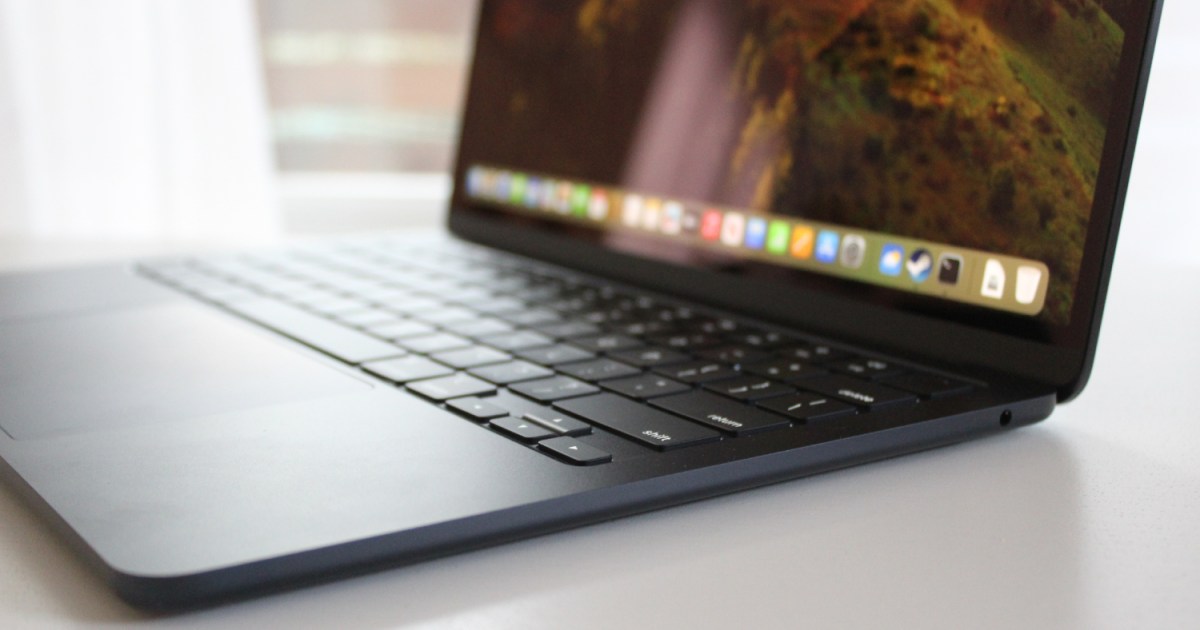You might have noticed that Apple’s various Macs haven’t had many hardware changes in recent years. The design of the MacBook Pro has barely changed since 2021, while the Mac mini’s chassis has remained the same since 2020 (and has barely been altered in almost 15 years). The Mac Pro, meanwhile, is still rocking the same look it’s had since 2019.
The slowdown in changes is intentional on Apple’s part, though it creates an obvious problem with how the company will get you excited about upgrading to devices in the future.
Longer-lasting devices
We shouldn’t really be too surprised about how we got here. Apple’s hardware designs are (usually) great, and they tend to last a lot longer than rivals’ devices, meaning there’s not a desperate need to regularly update them. Software, on the other hand, is moving so fast — especially when it comes to AI — that it makes a certain kind of sense that Apple prioritizes upgrades here over hardware tweaks.
Case in point: Apple is apparently working on an ultra-thin MacBook Pro that will take its cues from the latest iPad Pro. Yet it isn’t expected any time soon, meaning an even longer wait for new designs. The hardware plays second fiddle to the software.
This situation is likely to compound as Apple works to make its devices more durable. The company has just released a report explaining how it wants its devices to be as long-lasting as possible, and that durability is preferable to repairability. But if your hardware can survive for longer than ever, you won’t need to upgrade as often. That’s great news for us — but for Apple, it creates a new problem. Snazzy new designs have long been the main driver of selling new products for Apple, and without it, Macs will need something more.
This is where Apple Intelligence comes in. Apple’s AI system could comprise a new way for Apple to make money by offering a paid-for subscription service with more features, Bloomberg reporter Mark Gurman believes. Apple will also get a cut of revenues from partners like OpenAI.
From what I’ve seen so far, Apple Intelligence looks like a great addition to Macs, and I’m really looking forward to seeing how it integrates with — and improves — my computing life when using Apple’s hardware. In terms of day-to-day usage, it could elevate my Mac in ways no other Apple feature has been able to do in recent years, be that hardware or software.
But it’s not the same thing as getting frequent hardware upgrades. I’d love to get an OLED MacBook Pro or a Mac mini with a thinner form factor, but those products aren’t anywhere close to launching. With Apple slowing the pace of its hardware refresh cycles, I could be waiting for a long time yet.
Balancing hardware and software
Here’s the big question: How does the picture look for Macs look compared to iPhones? You need an iPhone 15 Pro or later to use Apple Intelligence, but on the Mac side, compatibility goes all the way back to the M1 series. Apple says the reason is device memory (which is more limited on iPhones than on Macs), and that makes sense given how generous its being with Mac backward compatibility. But it’s also just another reason not to upgrade the Mac.
If Macs as old as the 2020 MacBook Air can run Apple Intelligence, after all, it suggests Apple isn’t too fussed about upgrading its Mac hardware. There’s no pressing need to get Mac users ready for Apple Intelligence if their four-year-old computers can run it, implying Apple is under no great pressure to tune up its Mac hardware.
As a Mac user, it’s great that my M1 Mac mini will work with Apple Intelligence. Gurman believes Apple could launch a paid-for version of Apple Intelligence, and I wouldn’t mind seeing what Apple can offer here. It certainly tempts me more than ChatGPT Plus.
But if it means I have to wait a lot longer for Apple to upgrade its hardware (either with cutting-edge new tech or simply to bring features rivals have had for a while to the Mac) then that’s definitely a step back. I understand that Macs are beautiful, brilliant machines that last ages, but the tech world is incredibly fast-moving, and something that was top-of-the-pile even just a couple of years ago can swiftly feel outdated.
Hopefully, Apple Intelligence will be able to mitigate some of that thanks to its range of powerful features and their ability to elevate any Mac they come into contact with. But I just hope it won’t lead to Apple neglecting the hardware side of the equation.


